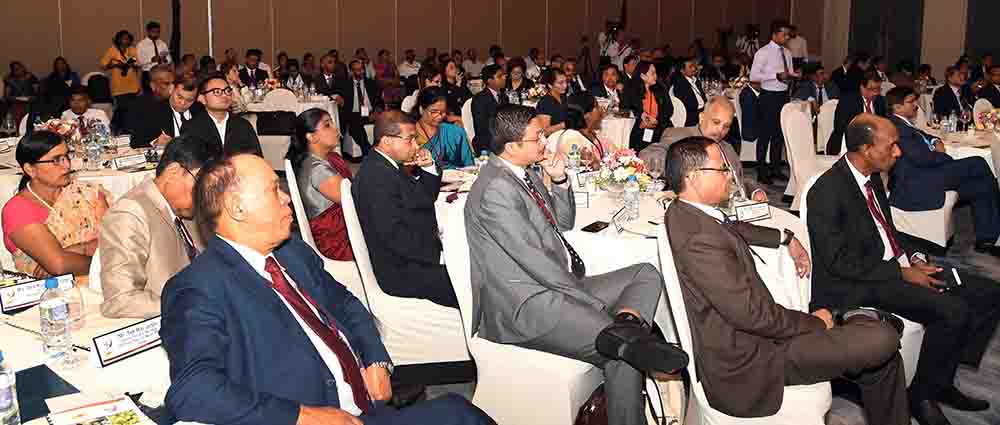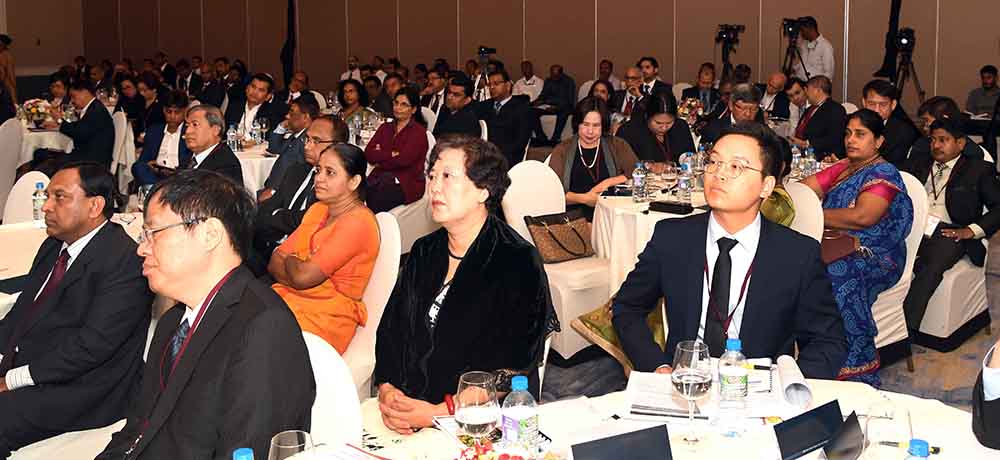News
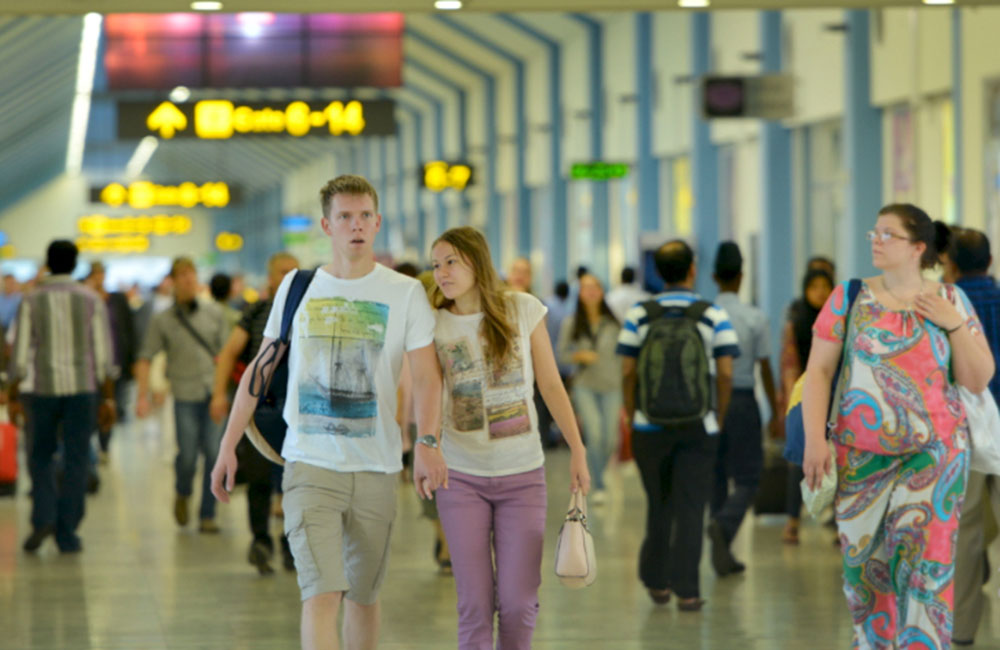
Worker remittances lose steam amidst an increase in tourist arrivals
The worker remittances to Sri Lanka have declined during July, though the earnings from tourism have continued to grow, providing a cushion to the current account of the external account of Sri Lanka, the Central Bank announced.
Sri Lankan workers’ remittances to the island have declined to a moderate level of 1.6 per cent, year on year, to USD 619 million in July 2018.
Consequently, on a cumulative basis, up to July 2018 workers’ remittances grew by 0.5 per cent (year-on-year) to USD 4,243 million
Meanwhile, tourist arrivals increased moderately by 6.0 per cent with 217,829 tourist arrivals in July 2018 despite July being the traditional off season period for tourists during the year.
Total tourist arrivals during the first seven months of 2018 were 1,382,476 with a growth of 13.7 per cent in comparison to the corresponding period of 2017.
Earnings from tourism in July 2018 are estimated at USD 404 million, with cumulative earnings amounting to USD 2.5 billion during the first seven months of 2018.
Growth in tourist arrivals from India, United Kingdom, Netherlands, Australia and the United States contributed to the higher number of tourists during the period.

World’s richest man Jeff Bezos on how a Sri Lankan changed his direction in life
Jeff Bezos is the founder of Amazon, the wealthiest person in modern history, world’s first centi-billionaire, founder of Blue Origin and the owner of Washington Post.
In short, 54-year-old Bezos has achieved everything a man dreams of. In just one lifetime, or shall we say just 24 years since he founded Amazon, Bezos went from a nerdy Princeton graduate to the zenith of the corporate galaxy.
Bezos graduated from Princeton with Bachelor of Science degrees in electrical engineering and computer science with a 4.2 grade point average. But that skyrocketing rise probably would not have been possible had Bezos decided to pursue a career in pure sciences. So what made Bezos realise he was not exactly the guy who would spend nights working to solve an equation?
The Amazon CEO himself gave the answer at The Economic Club of Washington. He said that all credit goes to his friend from Princeton, a Sri Lankan by the name of Yasantha, who he claimed was the smartest person in Princeton University at the time.
Bezos reveals how the epiphany that he would never make a good theoretical physicist dawned on him when Yasantha cracked a math problem.
Jeff recalled this Sri Lankan man who had the longest last name and how he solved a partial differential equation in no time.
He recalled how “we showed Yoshantha the math equation and he stares at it and said cosine the answer.”
It was then that the CEO of Amazon realized he cannot be a great theoretical physicist. He also expressed how some moments can change your life.
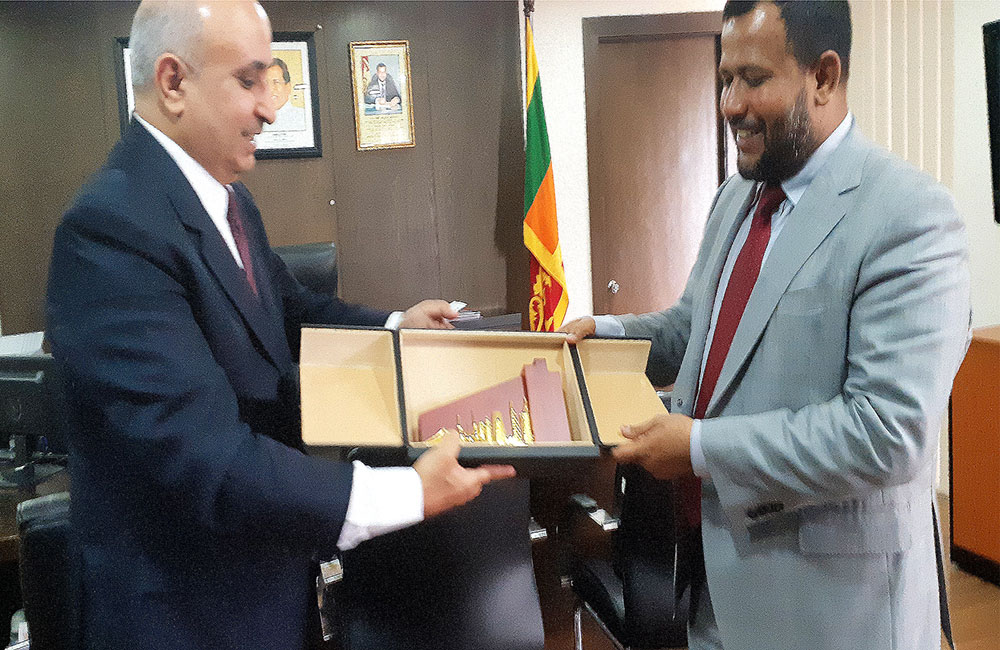
Sri Lanka to revive bilateral trade with Kuwait after two decades
After a hiatus exceeding two decades, Sri Lanka is reviving bilateral trade with the State of Kuwait, the second wealthiest economy in Gulf.
"The Government is reviving the Sri Lanka-Kuwait Joint Trade Committee after 21 years. This shall be a new turning point in the long-standing Kuwaiti-Sri Lanka relations” Minister of Industry and Commerce Rishad Bathiudeen said in Colombo recently.
Bathiudeen was addressing the Kuwaiti Ambassador to Sri Lanka Khalaf Bu Dhhair in Colombo during a preparatory discussion on the Second Session of Sri Lanka-Kuwait Joint Trade Committee that will open in Kuwait on 9 October.
A 13-member strong Sri Lankan official delegation led by Minister Bathiudeen, with officials from the Ministries of Industry and Commerce, Finance, Megapolis Development, Foreign Affairs, Higher Education, as well as state agencies (Foreign Employment Bureau, DoC and BoI) are scheduled to take flight on 8 October.
Kuwait is the second wealthiest country (per capita at US $ 30,000) in the Gulf region after Qatar (IMF).
According to the Department of Commerce, an Agreement on Trade between Sri Lanka and Kuwait was signed in April 1994. The First Session of Sri Lanka - Kuwait Joint Committee Meeting was held in Colombo in March 1997.
“Kuwait is the 49th import partner of Sri Lanka while Sri Lanka is ranked as 82nd partner in Kuwaiti import basket by 2016. These data show there is great but unrealised bilateral trade potentials” Minister Bathiudeen said.
Sri Lanka’s total trade with Kuwait which was at US$ 46.68Mn in 2016 and has increased by 4% to US$ 48.56 Mn in 2017. Last year’s total Lankan exports to Kuwait were at US $33 Mn while imports totalled US $15 Mn.
Sri Lanka’s leading exports to Kuwait this year so far have been Ceylon Tea, food preparations, fruits, nuts and other plant edibles, and Wood Fiberboard. Last year the top exports were Tea, edible preparations, desiccated coconut, wood and wood charcoal, and fish.
Sri Lanka’s top imports from Kuwait this year so far have been mineral / chemical fertilizers, polymers (of ethylene), sodium hydroxide and petroleum oils, while 2017 top imports were plastics, organic chemicals, paper & paperboard, wood pulp and iron and steel.
Petroleum has not been among imports (to Sri Lanka) from Kuwait till last year though this year (January-May) a very small volume of US$ 0.04 Mn has been imported after a long period of absence.
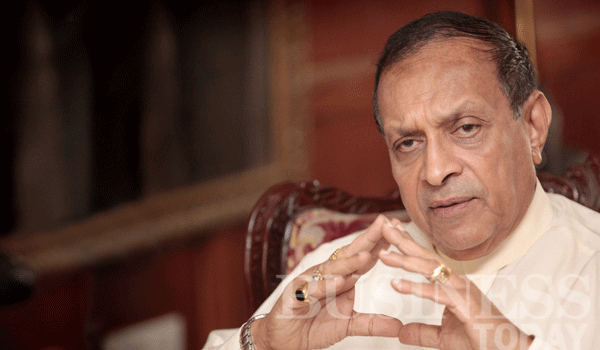
Constitutional Council nominations to be finalised by Wednesday: Speaker
The nomination of persons to the Constitutional Council (CC) is likely to be finalised by Wednesday (10th), Speaker Karu Jayasuriya said yesterday. The Speaker said that the remaining vacancies would be filled soon after Prime Minister Ranil Wickremesinghe returns to the country after his official visit to the United Kingdom. He added that this is likely to happen on October 10 or soon afterwards.
The Speaker will send the names of the new CC members to the President for appointment as soon as he receives the final nominations. The Speaker is yet to receive the list of nominations for the five members to be nominated by the Prime Minister and Opposition Leader and the nominee from the other political parties.
President Maithripala Sirisena nominated Minister Mahinda Samarasinghe as the President’s representative to the CC last month. The Speaker holds the Chairmanship of the Constitutional Council while the Prime Minister and Opposition Leader are ex-officio members.
Another five members are appointed by the President, on the nomination submitted by both the Prime Minister and the Leader of the Opposition. From these five members, three should be civil society representatives. One other person is appointed by the Members of Parliament from a political party other than the parties to which the Prime Minister and the Leader of the Opposition belong.
When, inquired about possible nominees to the CC the Speaker said he was not in a position to discuss any names but added he would send the nominations to the President as soon as they are finalised.
However, the ‘Daily News’ learns that the three civil society representatives are likely to be Senior Lecturer in Law at University of Colombo Attorney-at-Law N.Selvakumaran (Dean of Faculty at Law 2000 – 2012), Educator and Diplomat Javed Yusuf and Diplomat Jayantha Dhanapala who was Sri Lanka’s official candidate for the post of UN Secretary-General, before withdrawing from the race on September 29,2006.
However, there is opposition to the nomination of Dhanapala from some sections, the ‘Daily News’ learns.
Although CPA Executive Director Dr.Paikiasothy Saravanamuttu was to be nominated as a civil society representative, the Joint Opposition is opposing the move, it is learnt.
Meanwhile, Justice and Prison Reforms Minister Thalatha Athukorale and former Speaker Chamal Rajapaksa are likely to be nominated to the CC by the Prime Minister and the Opposition Leader.
The 10-member CC is the apex decision making body that recommends the appointments to the Independent Commissions and high ranking positions such as the Attorney General, Auditor General, Parliament Secretary General, IGP, Chief Justice and Supreme Court Judges etc.
It remains defunct since last month following the expiration of the three-year term of six members.
Meanwhile, current Chief Justice Priyasath Dep completes his term on Friday (12). Constitutionally, the President must forward the name of his nominee for Chief Justice to the Constitutional Council which must then approve the nomination.
“If the appointment of the Chief Justice is delayed the President can appoint an acting Chief Justice for a period of 14 days. If the appointment of the CJ gets delayed due to the lack of a quorum in the CC, the most likely person to be appointed as Acting Chief Justice will be Senior Supreme Court Judge, Eva Wanasundera,” government sources said.
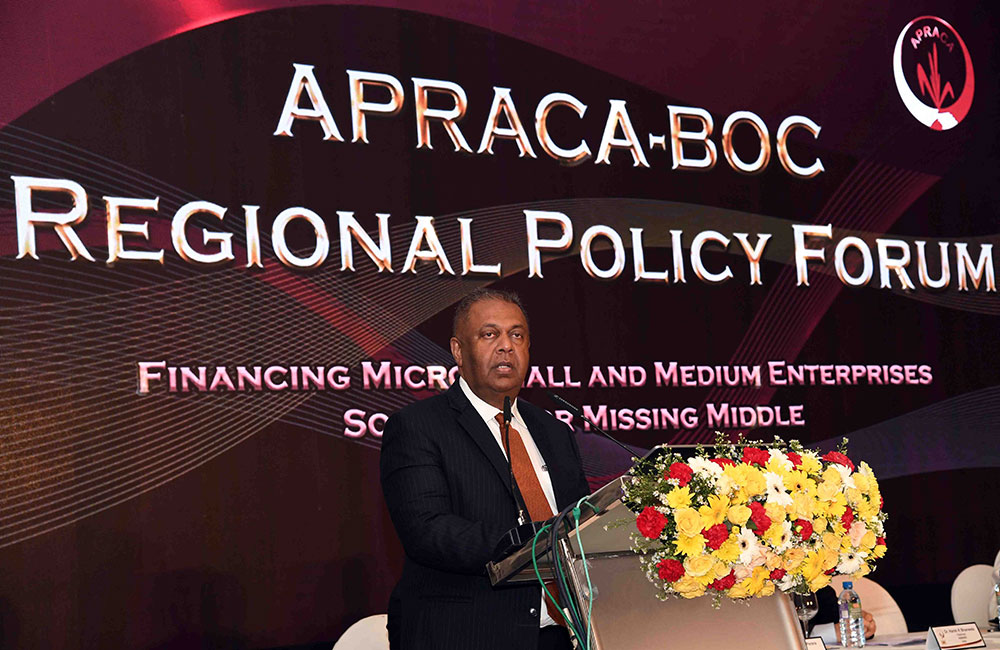
Sri Lanka’s SMEs to integrate into the formal sector: Mangala
Sri Lankan government’s is to integrate SMEs into the formal sector and also to establish hard and soft infrastructure frameworks to facilitate their growth
Measures are being taken to improve access to credit, access to markets, and encourage integration of value chains connecting SMEs and large firms.
This was stated by Finance Minister Mangala Samaraweera when he delivered the inaugural address at the Asia-Pacific Rural and Agricultural Credit Association (APRACA) on 8th October 2018 at Hilton Colombo.
The Government will encourage project-based lending rather than collateral based lending, rationalize upfront taxes that hinder expansion, and encourage knowledge sharing between R & D institutions and SMEs.
The government has identified the importance of the SME sector and initiated the ‘Enterprise Sri Lanka’ scheme to address some of these obstacles and minimise the SME finance gap in Sri Lanka.
Some of the issues targeted by this programme would be to make market interest rates more affordable by subsidising interest payments and addressing the pervasive issue of, lack of collateral, he said.
Youth unemployment is addressed partly by enabling young graduate’s to start-up companies, through access to interest free loans.
There are several subsidised loans for the agricultural sector, at various points of the value chain, in an effort to improve productivity and value addition in that sector, he added.
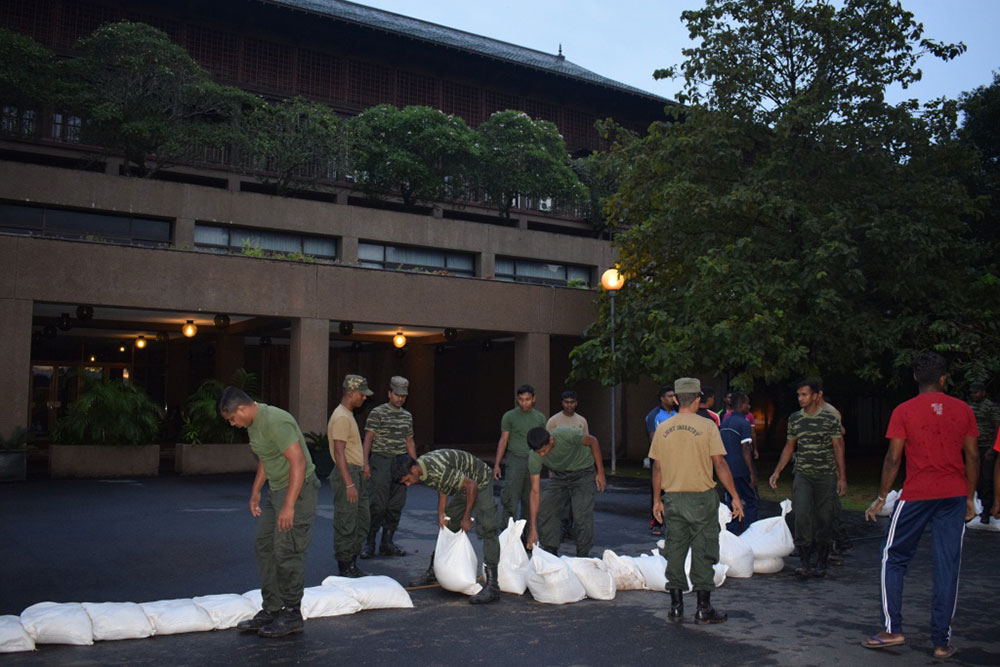
Troops Prevent Parliament Complex from Flooding
Troops of the 12 Gajaba Regiment and 4 Sri Lanka Light Infantry of the 14 Division under the Security Force Headquarters - West (SFHQ-West) during small hours on Sunday (7) rushed to the Parliament complex area and took necessary steps to prevent the entrance areas from getting inundated with rainwater which has risen to flood levels.
After being informed, Major General Sathyapriya Liyanage, Commander, Security Forces - West directed 14 Division troops to attend to the emergency situation developing around the Parliament complex due to prevailing torrential rains. Accordingly, 63 Army personnel laid sandbags along the sideways of the road that leads to the entrance across the Diyawanna Oya to prevent the premises from inundation around 3.00 am on Sunday (7).
Troops managed to prevent water from flooding the road in question and took other measures to avoid further seeping of rainwater.
Meanwhile, 8 Sri Lanka Sinha Regiment (SLSR) troops of the 58 Division under the SFHQ-West on Friday (5) took steps to remove a huge tree that has fallen on to the Colombo - Kandy road near 61st milepost in Kadugannawa. Twenty-seven 8 SLSR troops were able to clear the road for traffic by removing the fallen tree within a matter of few hours.
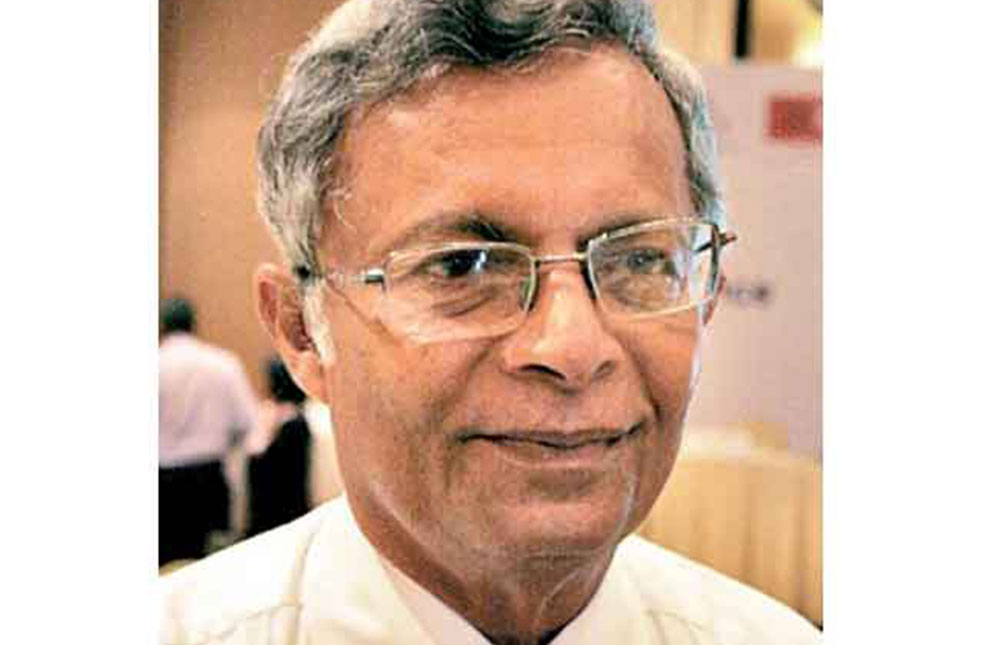
Former Attorney General Mohamed Shibly Aziz no more
Former Attorney General and President’s COunsel Shibly Aziz has passed away at the age of 75. Aziz, a well-known and eminent President’s Counsel contributed extensively to the development of the legal system in the country from 1968.
He served on a number of national commissions and statutory bodies and represented Sri Lankan in several international fora.
Aziz was appointed to the constitution council as civil society members in the nomination of prime minister and opposition leader from 2015 to 2018.
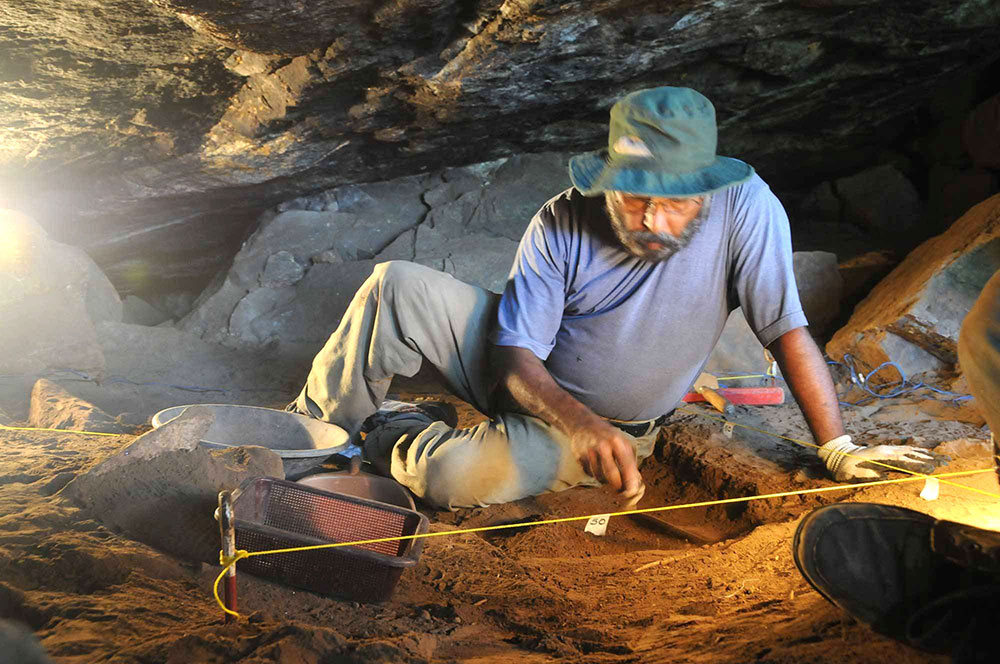
Raj Somadeva excavation permit fiasco - Archaeology Chief clarifies
Addressing widespread rumours and uproar regarding the refusal of the Department of Archaeology to renew the excavation permit granted to prominent Archaeologist Prof. Raj Somadeva, head of the Department Prof. Prishantha Mandawala says the decision was made as Somadeva along with 14 other researchers had not submitted the research reports and lists of artefacts found as required. “He merely handed over a document with newspaper articles regarding his recent work,” Mandawala said stating that instead, the Department requires researchers with permits to hand over extensive research reports about the work carried out.
Mandawala also denied claims that Somadeva was singled out and the decision has any political aspect to it. “He is not the only researcher who was denied a permit,” Mandawala said adding that the Department decided to take a tough stance as its repeated requests for detailed research reports went unheeded.
However, he also assured the ongoing excavations at the recently discovered Mass grave in Mannar by Somadeva will not be affected. “He does not need the Department’s permit to carry out work there,” Mandawala said. But supporters of Somadeva have been trying to portray the incident as an attempt to stop Somadeva’s work and hide certain aspects of the country’s history. Among others who have been denied permits are Prishantha Gunawardena, Jagath Weerasinghe, Gamini Adhikari, Sumanasiri Wawwage, Anura Manatunga, Arya Lagamuwa and several others.
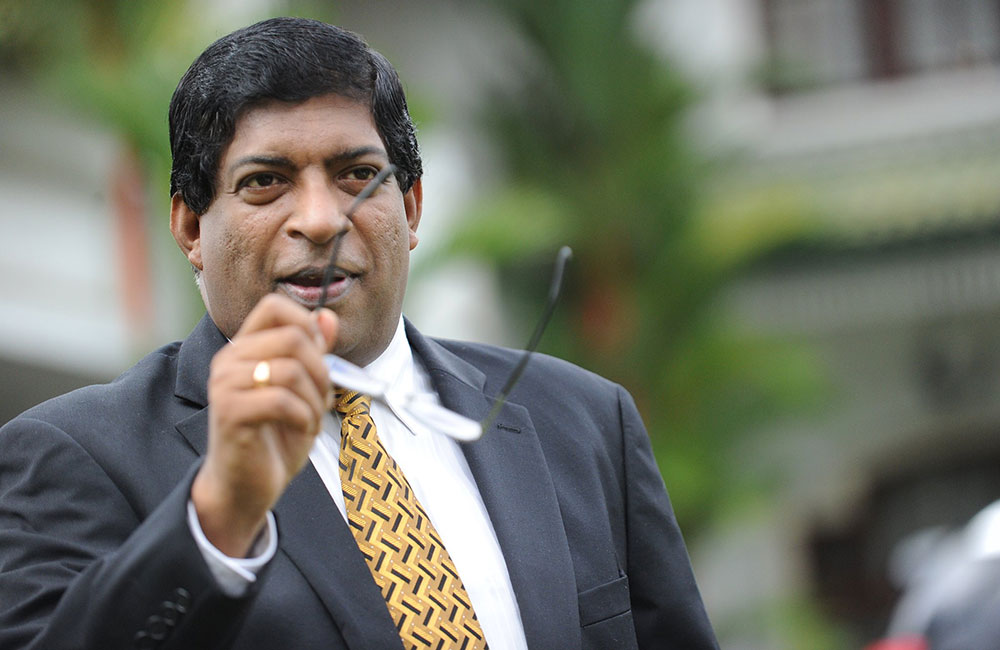
Naming Ravi as a suspect in CID investigation ruled unlawful
Colombo Chief Magistrate Ranga Dissanayake today (08) ruled that, at the moment it is illegal to name MP Ravi Karunanayake as a suspect in the investigation against MP Ravi Karunanayake for allegedly providing false information before the Bond Commission.
Since a case hearing has not been initiated at the moment under the Penal Code of the country with regard to the incident, the measure taken by the CID to name MP Ravi Karunanayake as a suspect is unlawful, Chief Magistrate Ranga Dissanayake stated, issuing the verdict on the complaint filed by the CID.
The Attorneys representing Global Transportation and Logistics (Pvt) Ltd had requested the court, at a previous hearing, to withdraw several orders issued on the relevant investigation.
However, the Chief Magistrate stated that issuance of these orders have been done according to the law.
Withdrawing the interim order halting the implementation of these orders, the Chief Magistrate then ordered the CID to carry out the orders that had been issued on September 14th.
Accordingly, the further hearing of the complaint was postponed to October 22 and the CID was ordered to report the progress of investigations on that day. (Ada Derana)
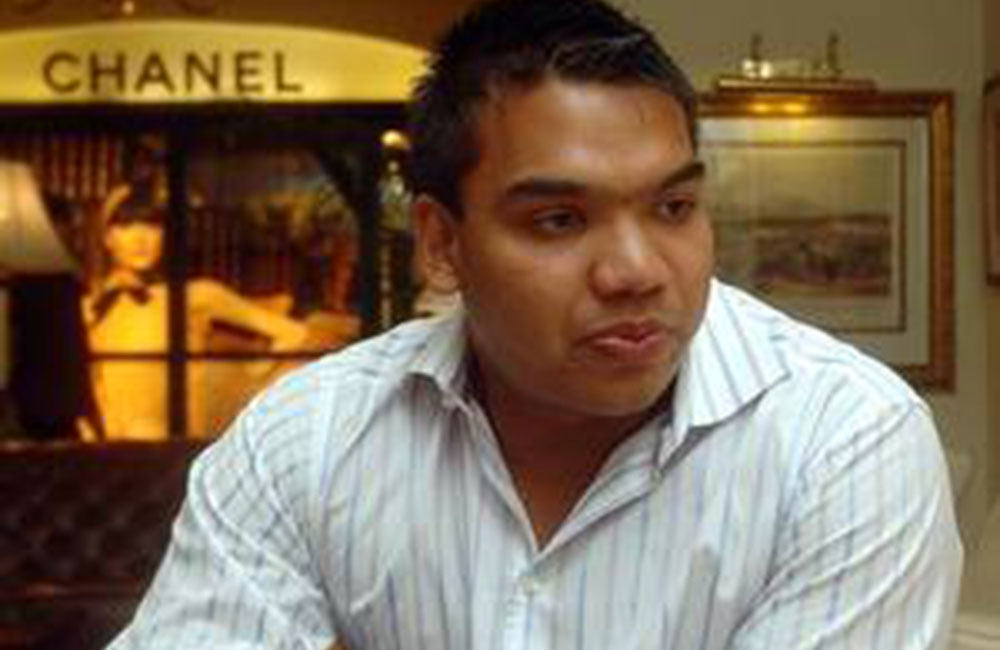
UL-HelloCorp deal opens can of worms
Sri Lanka’s flagship carrier, SriLankan Airlines (SLA) had fully outsourced its call centre operations in 2009 to HelloCorp, despite the controversial entity submitting a higher bid for the contract, the Presidential Commission of Inquiry (PCoI) into irregularities at SriLankan Airlines learnt last week.
HelloCorp, initially set up as a subsidiary of Expolanka Holdings PLC in 2002 was first acquired by NR Consultancy (Pvt) Ltd in 2012 and its shareholding was transferred to Gowers Corporate Services (GCS) a year later. Both NR Consultancy and Gower Corporate Services are fully owned entities of Namal Rajapaksa, the son of former President Mahinda Rajapaksa.
Namal Rajapaksa is currently on trial at Colombo High Court on charges of allegedly acquiring the HelloCorp call centre using laundered money through GCS and NR Consultancy (Pvt) Ltd.
At the time of the takeover of HelloCorp by GCS, SriLankan Airlines was headed by Nishantha Wickremasinghe, brother of former first lady Shiranthi Rajapaksa and Namal Rajapaksa’s maternal uncle. The Business Process Outsourcing (BPO) firm also then had an existing business agreement for coordinating services with SLA.
Testifying before the commission, witness SLA General Manager of Commercial Services and Support Services, Panduka Weeraratne said that while HelloCorp and SciCom, were selected as the finalists to run call centre operations for SLA, HelloCorp was finally awarded the three-year agreement despite offering a higher bid. While SciCom quoted Rs. 445 million, HelloCorp’s offer was Rs.28 million higher at Rs. 473 million.
A subsequent Board Paper submitted through the Head of Finance to the SLA Board had stressed the importance of an outsourced call centre (with four SLA staff and 126 outsourced contract staff) and highlighted that the outsourced operation would reduce staff by 50% and bring in Rs 77 million cost savings.
However, witness Weeraratne failed to produce any documentary evidence as to how such conclusions were arrived at prior to submitting the Board Paper or any later evaluations done. He further said that a 10-member team appointed in awarding this contract to an outsourced company of which he was a member, developed a Request For Proposal (RFP) and received responses from 10 vendors of which five companies were shortlisted following a marking scheme based on various factors.
According to investigations reported to court before the case went to trial, the ownership of HelloCorp was acquired through laundered money, using a trove of false invoices and documents to prove that NR Consultancy had sufficient avenues of income. Accordingly, Namal Rajapaksa had taken over HelloCorp through GCS by using his two close female associates as proxies.
In 2013 — during the period the HelloCorp transaction took place — the directors of GCS were Ornella Iresha Silva, a former Private Secretary to Namal Rajapaksa and Nithya Senani Samaranayake, the controversial air hostess attached to SriLankan Airlines, who was released to work in a ‘mysterious role’ at the Presidential Secretariat at an exorbitant salary. Samarasinghe is currently a member of the Colombo Municipal Council, elected on the SLPP ticket.
Directors and key executive staff of NR Consultancy were Lakshman Namal Rajapaksa (Holder of all shares), Nithya Samaranayake (Director), Ornella Iresha Silva (Legal Officer), Sudarshan Ganegoda (Director), Sujani Bogollagama (Chief Executive Officer), Dilrukshi Mahanama (Accountant) and Vasitha Pinnawala (Project Officer). The five-member PCoI consisted of Retired Supreme Court Justice Anil Gooneratne (Chairman), Court of Appeal Judge Gamini Rohan Amarasekara, Retired High Court Judge Piyasena Ranasinghe, Retired Deputy Auditor General Anthony Harold and Sri Lanka Accounting and Auditing Standards Monitoring Board Director General Wasantha Jayaseeli Kapugama.
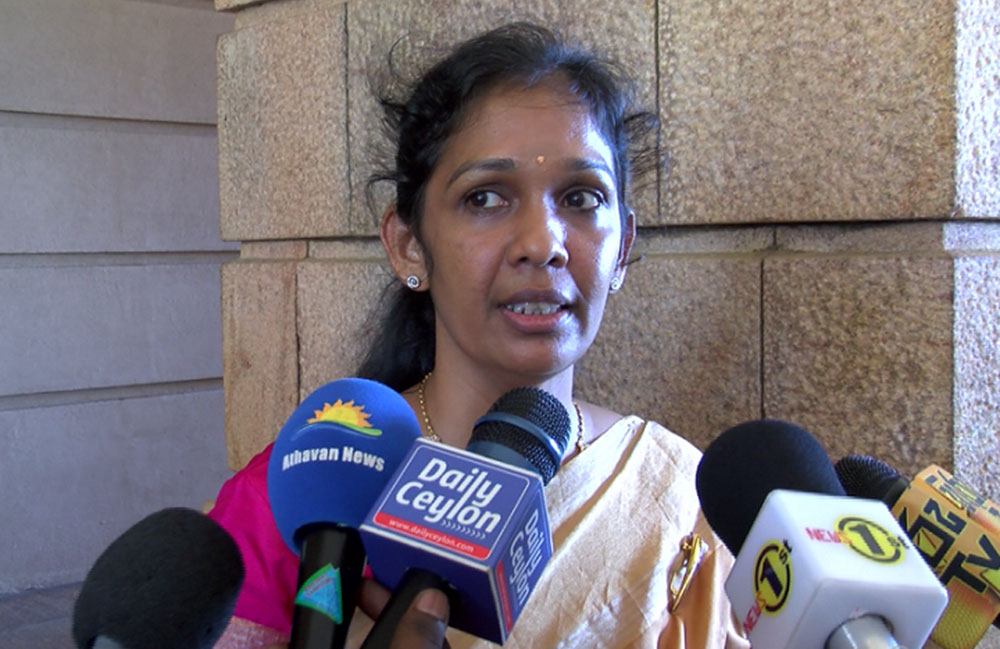
Vijayakala Maheswaran released on bail
Former State Minister and UNP MP, Vijayakala Maheswaran, who was arrested by the Police Organized Crimes Division (OCPD) in connection with a controversial statement she made recently on the resurgence of the LTTE, has been granted bail.
Maheswaran was released on a surety bail of LKR 500,000 by the Colombo Chief Magistrate Ranga Dissanayake, today (10).
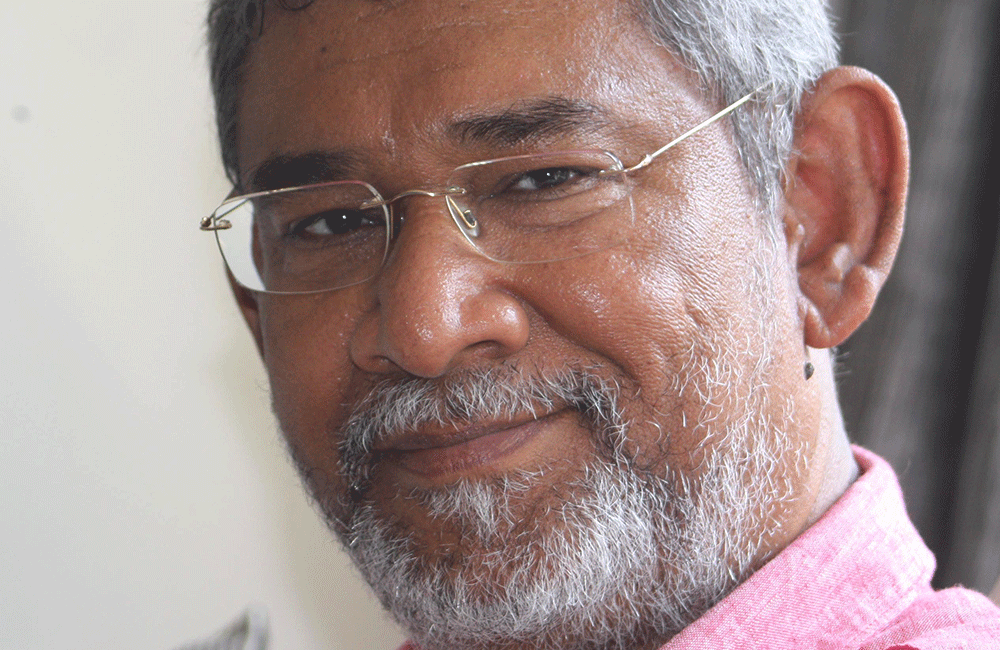
Dayan Jayatilleka refutes Sunday Times Report on SL Defense Attache recall
Refuting allegations made by the ‘Sunday Times’ Sri Lanka’s Ambassador to Russia, Prof. Dayan Jayatilleka claims the news was inaccurate and false.
“The headline of the newspaper story ‘Defense Attache’ recalled from Moscow after Dayan's Protest’ is false he said adding that he made no such "protest" and neither did he make an “official complaint" against the attache.
The Ambassador also denied sending a report to the Foreign Ministry as claimed by the newspaper.
I have made no official complaint about any staffer and have sent nothing in writing to either the Ministry of Foreign Affairs or the Ministry of Defense on any staffer or matter” Jayatilleke clarified.
However, the Ambassador did admit that he made certain critical observations in good humour, in agreement with the Defence Attache’s superior at an informal dinner claiming these have been taken out of context and embellished or spun. “The newspaper should have checked the story with me, which it did not” he added.
The Sunday Times in its report claimed Air Force Group Captain Channa Dissanayake, Sri Lanka’s Defence Attache in Moscow, has been recalled to Colombo and instructions had gone out last week after an official complaint by Sri Lanka new Ambassador in Moscow Dayan Jayatilleka.
It went on to say that the ambassador had said the Air Force officer had allegedly “partitioned” the Embassy premises calling it the “Defence Section” leaving other areas in the diplomatic mission outside it.
“Dr. Jayatilleke contended that he could not be the head of only one part of the Sri Lanka Embassy. He also alleged that the Defence Attache had imported a vehicle for his use in Moscow and it cost US$ 80,000” the report said. It also claimed Air Marshal Jayampathi was first told of the actions of the Defence Attache by Ambassador Jayatilleke when he visited Moscow recently and was recalled thereafter.
Page 398 of 526
